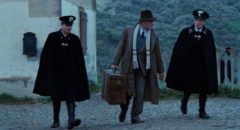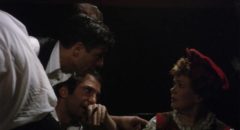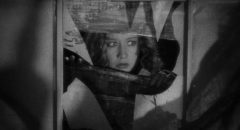
We love stories about bad people; even better, we love stories about bad people who begin to have doubts about themselves and the lives they’ve lived. Two new releases from Criterion explore that self doubt in genres tailor-made for such characters – the western (Henry King’s The Gunfighter, 1950) and the gangster film (Stephen Frears’ The Hit, 1984).








